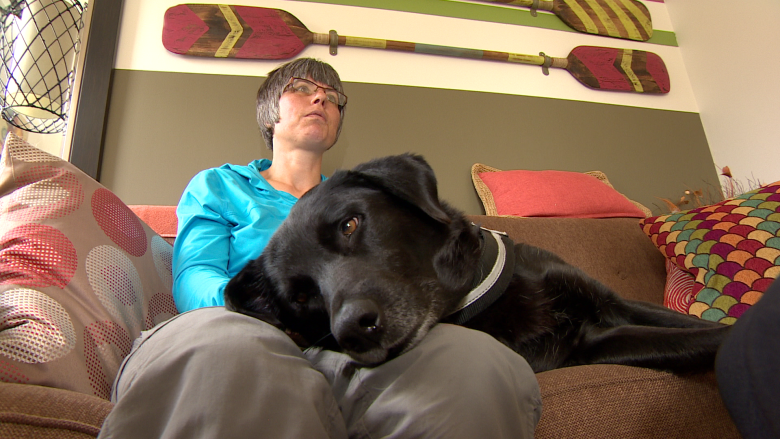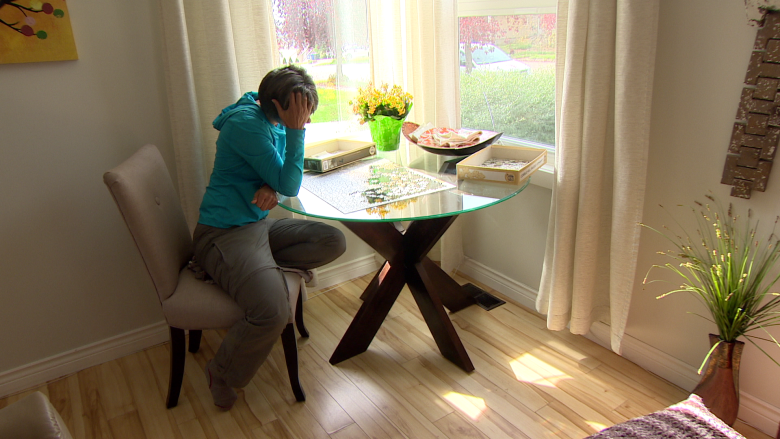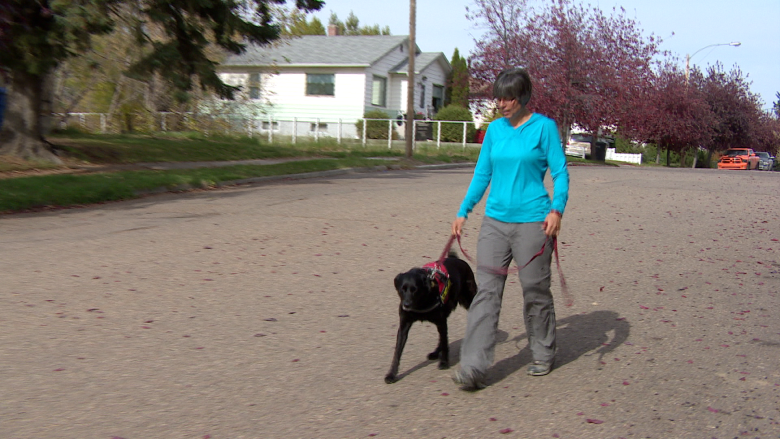Sask. woman shares her struggle with dementia at age 45
It was 2009 when Lori Michaud started forgetting to do simple tasks. She was in her late 30s and working as a teacher in Alberta.
In 2015, at the age of 44, she was diagnosed with dementia. She is now 45 living in North Battleford.
It all started after a night playing floor hockey. She had torn a ligament in her knee, and after a routine surgery she found her rehab to be increasingly difficult.
"I had to get had to get back to work in a few weeks [after surgery] and it was like someone had flicked a light switch [off]," explained Michaud. "I couldn't keep up. I was always a confident teacher. I would always go, go, go, and like any teacher I could handle ten things at once and all of a sudden, I couldn't remember what my principal had asked me to do, I wasn't turning in reports, I was sending kids home on a bus when I shouldn't have been, and people were making up for shortfalls for me."
At home, she found herself leaving her front door wide open, and getting groceries over and over again. Sometimes, she would pull out of her garage not knowing where she was going.
These small things continued to happen until she hit a breaking point. She got up one morning and found herself standing in the bathroom door.
"I didn't know if I was supposed to shower or get dressed or eat or — I didn't know what to do. I didn't know what my routine was," said Michaud. "You know, you could have groggy mornings but that wasn't a groggy morning and I'm not groggy in the morning, so that prompted me to go see my doctor and see what could be going on."
Michaud said she's never had a cognitive problem in her life. She described herself as a high functioning, busy person.
"The only thing that had changed was the surgery. The only thing I could think was something went wrong in the surgery," she said.
Michaud believes she was predisposed to dementia and that the anaesthetic served as the environmental trigger to set it off.
"I don't know how else you would explain a change like that and to me, it had to be pre-existing in my brain."
After two years of tests, she was officially diagnosed in 2015 with dementia. Though uncertain of the type, she said it was probable that she had Lewy Body dementia. It's a combination of Alzheimer's and Parkinson's disease.
Along with very stiff joints, she also experiences hallucinations and nightmares.
"You can't tell the difference between what goes on at night and what's reality and mine can almost be psychotic. I'll fly out of bed, I'll kick, I'll scream, I'll punch, I'll talk, I'll sometimes stiffen right up and I can't move," said Michaud.
"I kind of laugh about it [because] sometimes it's just funny. How can your brain go there? How is it that it can do this to you? I'm more amazed than anything else. I never get down on myself."
Difficult to diagnose
"We know that it's challenging to get a diagnosis of Alzheimer's disease and statistically, they say, half of everybody who's currently living with the disease does not have a diagnosis," said CEO of the Alzheimer Society of Saskatchewan, Joanne Bracken.
"Often people who are younger have talked to us about having difficulty convincing the healthcare system to take their symptoms seriously. Sometimes their symptoms are discounted. You know, they're being dismissed because [they're told they're] too young to have a dementia," she added.
According to Bracken, it wasn't until 2008 that studies on dementia have included people under the age of 65. She said an estimated 72,000 people under 65 are living with some form of dementia in Canada and in Saskatchewan, about 2,200 people in that age category are living with the disease.
Bracken said dementia can take up to 24 months to get a diagnosis.




